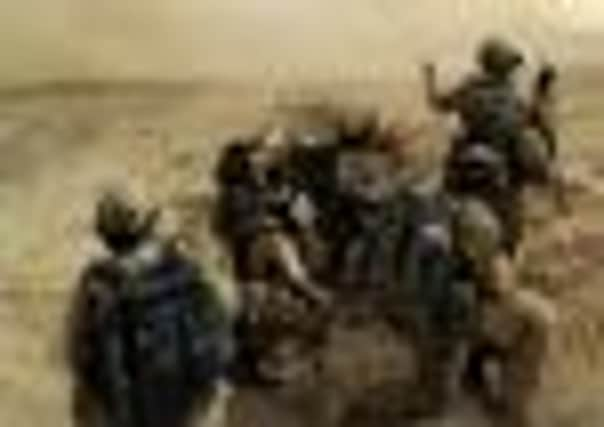Patrick Mercer: After 10 years in Afghanistan, we must remember that wars are not just bombs and bullets


First, it is worth pointing out the West had started its attack on Afghanistan long before we sent troops in there.
President Clinton decided to respond to a number of al-Qaida attacks against the US by attacking Osama bin Laden’s bases with cruise missiles as early as 1998. But it was only after the September 2001 atrocities that troops were committed.
Advertisement
Hide AdAdvertisement
Hide AdAnd how things have changed over the last 10 years. I was one of the first British MPs to visit Kabul in 2002 after British troops were deployed.
It is unfair to say that our soldiers were bored, but it was certainly nothing like the tours that have been going on in Helmand since 2006.
Indeed, it seemed as things were going to be relatively easily resolved and that our military involvement would be shortlived.
And that, of course, was the lesson that Britain learned in the 19th and 20th centuries. Then, we had three “invasions” of Afghanistan, all of which – despite disasters such as the retreat from Kabul in 1842 and Maiwand in 1880 – could be judged a success.
Advertisement
Hide AdAdvertisement
Hide AdNow, before historians start bombarding me with contradictions, let me qualify. Broadly speaking our political aims were met and our troops got the hell out! And this, of course, is the mistake that we have made this time.
Shamefully, the Soviets made the same mistake (going in with no clear aim and no idea how it might all end) in the 1980s. They were only “saved” by internal revolution. Why did we fail to learn lessons?
Arguably, if we had kept our troops in and around President Karzai’s seat of government with one or two tentative missions to the north, then things might have continued in a reasonably benign but endless way.
It was only the decision to go into Helmand in 2006 that changed the game and this is the remarkable thing: in Helmand in 1880 we tried something similar and lost slightly under one thousand men in just under four hours and ended up being besieged in the regional capital of Kandahar.
Advertisement
Hide AdAdvertisement
Hide AdOn top of that, the tribesmen of this very region killed Soviets by the hundred just a few years ago. It was clear from the debate that I took part in that the Labour government had no appreciation of this and it was even clearer that the Ministry of Defence’s history books had not been opened.
I don’t need to go through the litany of deaths that have occurred since, the muddled military strategy and the inscrutability of the Afghan government craving our support but criticising the Allies every time they get something wrong.
All of these things are too well known already. But the aims of the government who deployed our troops there are worthy of a bit more examination.
First, Tony Blair told us that we were going into the southern part of Afghanistan in order to secure the border with Pakistan and seek battle with al-Qaida.
Advertisement
Hide AdAdvertisement
Hide AdWhen we found that battle (principally with the Taliban) the aim soon changed to a much softer and palatable aim of fighting the drugs trade, “extending democracy”, driving back primitivism and even helping Afghan women to establish equal rights! It was all nonsense.
I wonder why the government of the day then modified the aim yet again to our being in Afghanistan so that we could keep the streets of Britain free from terrorism.
It is worth remembering that those who attacked us in London in July 2005 were Yorkshiremen, not Afghanis, and that the Taliban have no desire whatsoever to establish some sort of Sharia law-based government in Washington and Westminster.
No, conventional military operations can never achieve this – what they can do, though, is drive back insurgent armies who are intent on destabilising the region.
Advertisement
Hide AdAdvertisement
Hide AdNo, it needs to be spelt out that the war in Afghanistan is part of a regional conflict that stretches from the borders of Iran to those of Russia and, crucially, envelopes nuclear-armed Pakistan.
We and our allies are in Afghanistan to prevent those weapons and Afghanistan-Pakistan falling into the wrong hands. I believe that is an aim for which we must continue to fight – but the fight must be conducted with greater intelligence.
So, what do we do? First, we subjugate politics to the good of the people: it is too late now, but President Obama should never have told our enemies when he intended to leave.
Second, we must talk to the Taliban, remembering that at one stage we would have viewed them as “good Mujahideen” and backed them with weapons and resources. Lastly, and this is hugely simplistic, we have got to remember what the Victorians knew – that wars are not just about bombs and bullets. Now, we have got the opportunity to enrol the Afghans and Pakistanis in their own future and make them responsible for the peace and freedom they deserve.
Let’s not squander the chance.